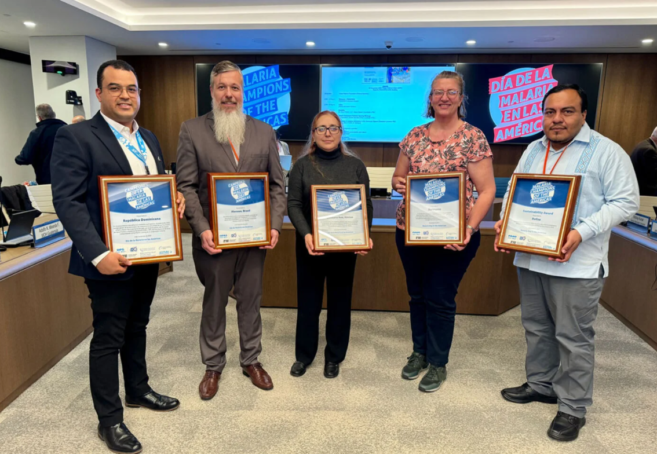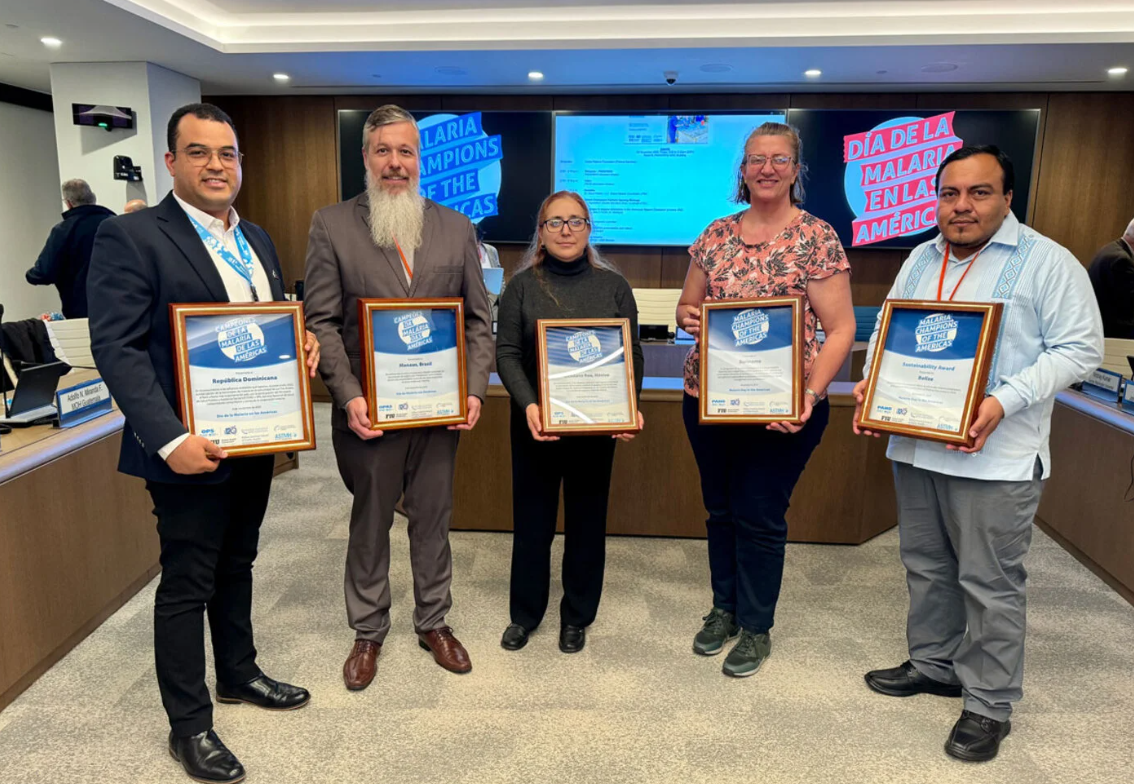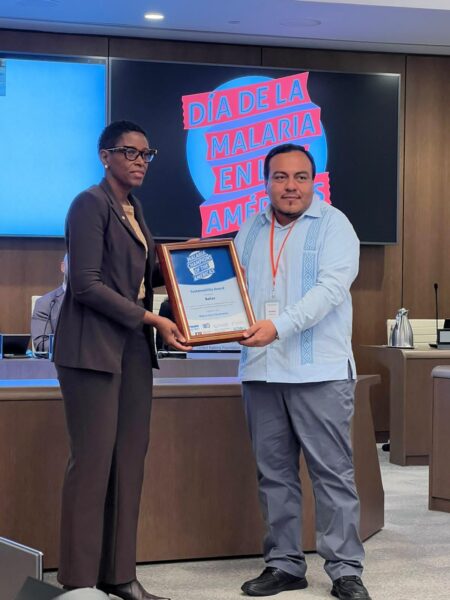Belize has been honored with the 2023 Pan American Health Organization (PAHO) Malaria Champions of the Americas prize. Belize was honored with the prestigious recognition on Friday, November 3rd, in the United States capital, Washington, DC. Other countries also receiving the award included the Dominican Republic, Suriname, the Mexican state of Quintana Roo, and the Brazilian city of Manaus.
The award recognized Belize for its sustained actions towards malaria elimination in the country. During the event, PAHO and its partners acknowledged the national and subnational efforts of the awarded countries and the impact their efforts have had in addressing the deadly disease. “Despite the significant challenges that remain in eliminating Malaria in the Americas, we also have successful experiences from these countries. This helps the position of us as one of the regions making the most progress towards the elimination of this disease globally,” PAHO’s Director, Dr. Jarbas Barbosa said.
Belize was certified malaria-free by the World Health Organization in June of this year. The Ministry of Health and Wellness in Belize welcomed this recognition, highlighting that the Jewel was selected from 27 admissions, featuring national programs, projects, and organizations, among other groups. The ministry commended the management, directors, senior advisors, departments, and support staff working alongside and supporting the Vector Control Program in Belize.
Another awardee, the Dominican Republic, was recognized for its efforts to interrupt malaria transmissions by 2022. Suriname was recognized for being the first Amazonian country to report zero malaria cases for a year. The Mexican state of Quintana Roo was also honored for its efforts to interrupt malaria transmission and prevent the re-establishment of the disease. The municipality of Manaus in Brazil was recognized for its intensified surveillance initiatives to avoid transmitting the disease.
The Malaria Champions is a collaborative effort of many organizations. These include PAHO, the United Nations Foundation, the Milken Institute School of Public Health at George Washington University, Johns Hopkins University’s Center for Communication Programs, the Florida International University, and the American Society of Tropical Medicine and Health. Since 2009, over 40 projects across the region have been recognized with this award.
The Malaria Day in the Americas was celebrated on Monday, November 6th, highlighting the opportunity for other countries in the region to eradicate the disease. The Day was observed under the theme ‘Reaching Zero Malaria.’
Malaria is caused by parasites of the genus Plasmodium, transmitted to humans through infected Anopheles mosquitoes. It is prevalent in tropical regions, and some symptoms can range from mild, such as fever and headache, to severe forms that can lead to death.
PAHO has stressed that to combat Malaria, countries and their partners must prioritize actions to improve access to diagnosis and treatment. According to PAHO, the countries affected by the disease need to address the barriers affected communities may face, such as rural and mobile populations.
PAHO said this policy, Integrated Sustainable Approach to Communicable Diseases in the Americas, is part of PAHO’s 2030 elimination initiative of infectious diseases in the Americas, which include Malaria and more than 30 communicable diseases, leading to healthy nations in the Western Hemisphere.




